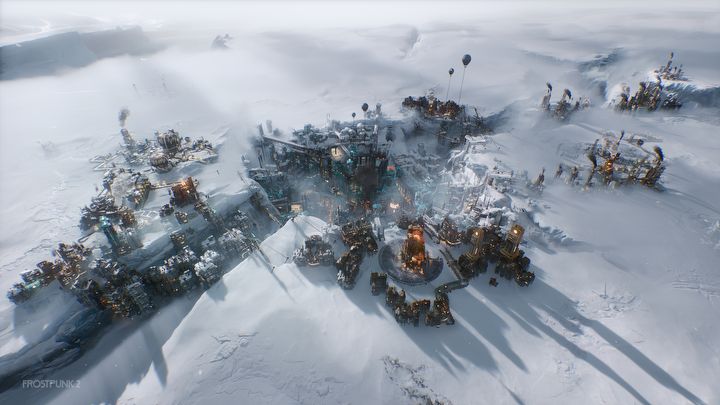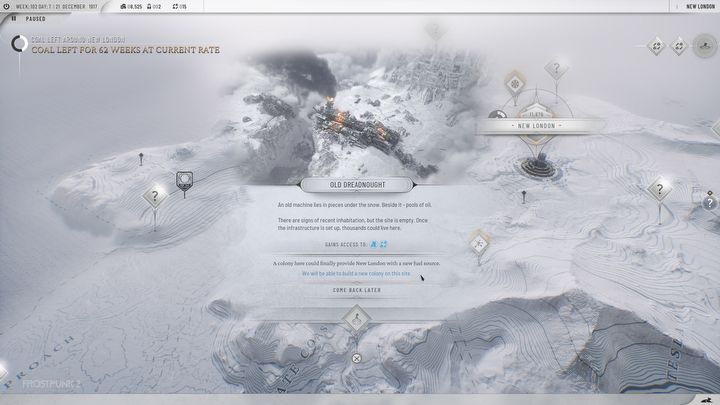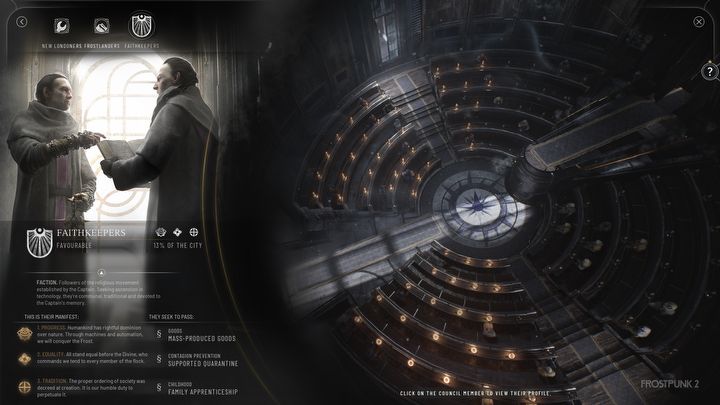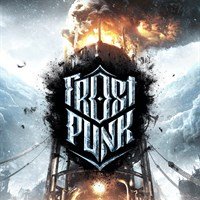Frostpunk 2 Hands-on - My Fears Are Now Gone
Frostpunk 2 is as lethal of a game as the original, but it accomplishes its objectives through different means. We will face not the frost, but politics, and the scale of construction exceeds the small town centered around the reactor.
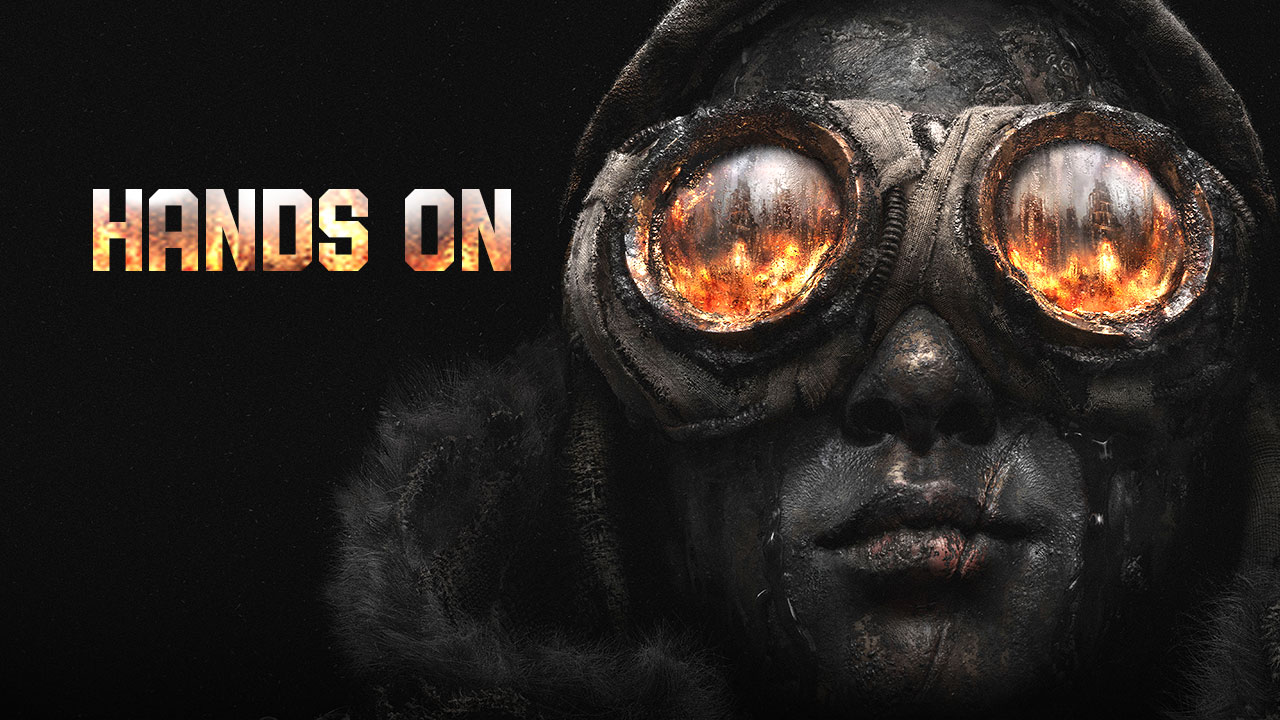
A sign of global warming is likely the fact that the chilliest game will be released in July. So when the sun outside heats the concrete cities to red-hot, you will be able to sit in front of your computers and play Frostpunk 2. Invited by 11 bit studios, I went to Warsaw to be one of the first people in the world to play the game's campaign. And my earlier fears, which I carried over from the beta, have essentially melted down to nothing. This will be a good game. Difficult as hell, but good.
The story of Frostpunk 2 takes place after the events of the first game. Greta Thunberg departed long ago, and we've learned to handle -50-degree temperatures, so the cold won't be our primary worry. The enemy in Frostpunk 2 is rather another human being. We are no longer ruling as despots - we have to consider the opinions of various factions and respect (or not) their agenda. It's a change that is crucial to the gameplay of Frostpunk 2 - in fact, it's impossible to play the game while ignoring the local government, as we'll quickly see the "game over" screen.
Speaking of the end of the game, we start the campaign in Frostpunk 2 differently than in the original. Because we aren't reaching an abandoned generator, but a wreck of a dreadnought. We will activate its engines to provide warmth for our people, and we will build around it. If you have played the beta, you are aware that we will be constructing entire specialized quarters instead of individual buildings. So we have to set up a residential district, and then a district that will deal with coal or oil extraction. It will also be useful to have a district dedicated to food production, gathering building materials, and so on. Quickly our city - which no longer has an "oval" shape - will grow, and the needs of our residents will increase. While the temperature may not be as important anymore, it doesn't mean you can stop caring for the resources, as you will soon be required to reload the save. We must constantly monitor parameters such as food, housing, homelessness, materials, labor force, goods, and poverty. A high "squalor" parameter will lead to our neighborhoods ceasing to function, and an active mine raises the risk of nearby buildings collapsing.
All this makes the difficulty level in Frostpunk 2 really high. The game starts with a task that gradually introduces players to the challenging world of the game through the plot and objectives. However, I saw the first game over screen within about 15 or 20 minutes, mainly because I stubbornly refused to slaughter the last herd of seals on Earth. What can I say? The last seals are more important to me than the last humans.
I started from the beginning and this time I lasted half an hour. I glanced around the room, bewildered, and noticed that I wasn't the only one losing. By the way, I was playing on a normal difficulty level. Only on the third attempt, when I finally understood what to focus on first, was I able to move forward. The difficulty level in Frostpunk 2 - especially if you aren't among the experienced fans of the genre - may defeat you, but isn't that what survival in extreme conditions is all about? I hope it will never become a relaxing game, although the difficulty level is still a matter of debate, as I learned from conversations with devs. Simply put, Frostpunk isn't that type of a game.
Dura lex, sed lex
The campaign of Frostpunk 2 - at least the first two stages I played - feels like a hardcore tutorial. We are learning the game and gradually familiarizing ourselves with the mechanics. We will soon unlock the research, and then of course, the opportunity to vote on the law. This time, though, it's certainly a more meaningful and elaborate aspect of the game. Our government consists of different factions that can even modify research or buildings - in other words, Frostlanders would want to extract coal differently than Stalwarts. Sometimes, when we try to pass a certain law, we may find that we lack majority backing in the government. To obtain it, we need to start negotiations - in other words, promise some nonsense just like politicians usually do. The distinction is that we will later need to fulfill those promises... or suffer the consequences. If we promise the opposing party, for instance, that they will have the opportunity to choose the next voting law, they will back our legislation. We will achieve what we intended, but... we will get entangled in a political relationship from which there is no way out.
Once we deal with the temperature, food, resources, and government, we can venture into the world. We will once again explore the world map by dispatching an expedition. In the newly discovered places, we can build our outposts, for example a mine, to import coal to our main city. If you have played the first Frostpunk, you will discover many familiar locations on the map. Because, we will explore the essential locations for the lore of the first game, such as New London.
After the Frostpunk 2 beta, I had ambivalent feelings. On the one hand, I really liked it, but on the other, I missed the original solutions for the passing of time and the upcoming severe cold. After playing for just under two hours, I can say that it's definitely worth waiting for the sequel - the campaign story really immerses us in this world, and the game's goals require constant monitoring and management of our city. Frostpunk 2 still relentlessly wears us out. The methods have simply changed.
